News & Politics

A factory and a store are burning after been bombarded in Irpin, in the outskirts of Kyiv, Ukraine, Sunday, March 6, 2022. Photo: AP/UNB
Russian forces intensified shelling of cities in Ukraine's center, north and south, a Ukrainian official said, upending attempts to evacuate besieged civilians. With the Ukrainian leader urging his people to fight in the streets, Russian President Vladimir Putin shifted blame for the invasion, saying Moscow's attacks could be halted "only if Kyiv ceases hostilities."
The outskirts of Kyiv, Chernihiv in the north, Mykolaiv in the south, and Kharkiv, the country's second-largest city, faced stepped-up shelling late Sunday, presidential adviser Oleksiy Arestovich said. Heavy artillery hit residential areas in Kharkiv and shelling damaged a television tower, according to local officials.
"This is likely to represent an effort to break Ukrainian morale," the U.K. Ministry of Defense said of Russian tactics as the war entered its 12th day Monday. Fighting has caused 1.5 million people to flee the country, which the head of the U.N. refugee agency called "the fastest-growing refugee crisis in Europe since World War II."
The most recent attacks dashed hopes that more people could escape the fighting in Ukraine, where Russia's plan to quickly overrun the country has been stymied by fierce resistance. Russia has made significant advances in southern Ukraine and along the coast, but many of its efforts have become stalled, including an immense military convoy that has been almost motionless for days north of Kyiv.
Food, water, medicine and almost all other supplies were in desperately short supply in the southern port city of Mariupol, where Russian and Ukrainian forces had agreed to an 11-hour cease-fire that would allow civilians and the wounded to be evacuated. But Russian attacks quickly closed the humanitarian corridor, Ukrainian officials said.
"There can be no 'green corridors' because only the sick brain of the Russians decides when to start shooting and at whom," Interior Ministry adviser Anton Gerashchenko said on Telegram.
A third round of talks between Russian and Ukrainian leaders is planned for Monday.
Ukrainian President Volodymyr Zelenskyy rallied his people to remain defiant, especially those in cities occupied by Russians.
"You should take to the streets! You should fight!" he said Saturday on Ukrainian television. "It is necessary to go out and drive this evil out of our cities, from our land."
Zelenskyy also asked the United States and NATO countries to send more warplanes to Ukraine. But that idea is complicated by questions about how to provide aircraft to Ukrainian pilots.
He later urged the West to tighten its sanctions on Russia, saying that "the audacity of the aggressor is a clear signal" that existing sanctions are not enough.
A senior US defense official said Sunday that the U.S. assesses that about 95% of the Russian forces that had been arrayed around Ukraine are now inside the country. The official said Russian forces continue to advance in an attempt to isolate Kyiv, Kharkhiv and Chernihiv, but are being met with strong Ukrainian resistance.
The official, who spoke on condition of anonymity to discuss military assessments, said the convoy outside Kyiv continues to be stalled.
As he has often done, Putin blamed Ukraine for the war, telling Turkish President Recep Tayyip Erdogan on Sunday that Kyiv needed to stop all hostilities and fulfill "the well-known demands of Russia."
Putin launched his invasion with a string of false accusations against Kyiv, including that it is led by neo-Nazis intent on undermining Russia with the development of nuclear weapons.
The Russian Defense Ministry on Sunday announced that its forces intend to strike Ukraine's military-industrial complex with what it said were precision weapons. A ministry spokesman, Igor Konashenkov, claimed in a statement carried by the state news agency Tass that Ukrainian personnel were being forced to repair damaged military equipment so that it could be sent back into action.
Zelenskyy criticized Western leaders for not responding to Russia's latest threat.
"I didn't hear even a single world leader react to this," Zelenskyy said Sunday evening.
The Russian Defense Ministry also alleged, without providing evidence, that Ukrainian forces are plotting to blow up an experimental nuclear reactor in Kharkiv and to blame it on a Russian missile strike.
Putin and French President Emmanuel Macron spoke Sunday about the nuclear situation in Ukraine, which has 15 nuclear reactors at four power plants and was the scene of the 1986 Chernobyl nuclear disaster.
The men agreed in principle to a "dialogue" involving Russia, Ukraine and the U.N.'s atomic watchdog, according to a French official who spoke on condition of anonymity, in line with the presidency's practices. Potential talks on the issue are to be organized in the coming days, he said.
Putin also blamed the fire last week at the Zaporizhzhia nuclear plant, which Ukrainian officials said was caused by Russian attackers, on a "provocation organized by Ukrainian radicals."
International leaders, as well as Pope Francis, appealed to Putin to negotiate.
In a highly unusual move, the pope said he had dispatched two cardinals to Ukraine to try to end the conflict.
"In Ukraine, rivers of blood and tears are flowing," the pontiff said in his traditional Sunday blessing.
The death toll remains unclear. The U.N. says it has confirmed just a few hundred civilian deaths but also warned that the number is a vast undercount.
About eight civilians were killed by Russian shelling in the town of Irpin, on the northwest outskirts of Kyiv, according to Mayor Oleksander Markyshin. The dead included a family.
Video footage showed a shell slamming into a city street, not far from a bridge used by people fleeing the fighting. A group of fighters could be seen trying to help the family.
The handful of residents who managed to flee Mariupol before the humanitarian corridor closed said the city of 430,000 had been devastated.
"We saw everything: houses burning, all the people sitting in basements," said Yelena Zamay, who fled to one of the self-proclaimed republics in eastern Ukraine held by pro-Russian separatists. "No communication, no water, no gas, no light, no water. There was nothing."
British military officials compared Russia's tactics to those Moscow used in Chechnya and Syria, where surrounded cities were pulverized by airstrikes and artillery.
Zelenskyy reiterated a request for foreign protectors to impose a no-fly zone over Ukraine, which NATO so far has ruled out because of concerns such an action would lead to a far wider war.
"The world is strong enough to close our skies," Zelenskyy said Sunday in a video address.
Ukraine's military is greatly outmatched by Russia's, but its professional and volunteer forces have fought back with fierce tenacity. In Kyiv, volunteers lined up Saturday to join the military.
The West has broadly backed Ukraine, offering aid and weapon shipments and slapping Russia with vast sanctions. But no NATO troops have been sent to Ukraine.
Ukraine is planning to create an international legion of volunteer fighters from dozens of countries. More than 20,000 people have volunteered, according to Ukrainian Foreign Minister Dmytro Kuleba, though it was not clear how many were in Ukraine.
"The whole world today is on Ukraine's side, not only in words but in deeds," he said on Ukrainian television Sunday night.
Russia has made significant advances in southern Ukraine as it seeks to block access to the Sea of Azov. Capturing Mariupol could allow Moscow to establish a land corridor to Crimea, which Russia annexed from Ukraine in 2014 in a move that most other countries considered illegal.
Russia has become increasingly isolated in the days since the invasion began, closing itself off to outside sources of information as sanctions bite deeply into its economy. The ruble has plunged in value, and dozens of multinational companies ended or dramatically scaled back their work in the country.
On Sunday, American Express announced it would suspend operations in Russia, as well as in Russian-allied Belarus. Also, two of the so-called Big Four accounting firms, KPMG and PricewaterhouseCoopers, said Sunday they would end their relationships with their Russia-based member firms.
TikTok announced Sunday Russian users would not be able to post new videos or see videos shared from elsewhere in the world. The company blamed Moscow's new "fake news" law, which makes it illegal, among other things, to describe the fighting as an invasion. Netflix also cut its service to Russia but provided no details.
Facebook and Twitter have already been blocked in Russia, along with access to the websites of a number of major international media outlets. TikTok is part of the Chinese tech company ByteDance.
U.S. House Speaker Nancy Pelosi said Congress is exploring how to further isolate Russia from the global economy, including banning the import of its oil and energy products into the United States. Pelosi said Sunday that the legislation under consideration would also repeal normal trade relations with Russia and Belarus and begin the process of denying Russia access to the World Trade Organization.
From The Associated Press






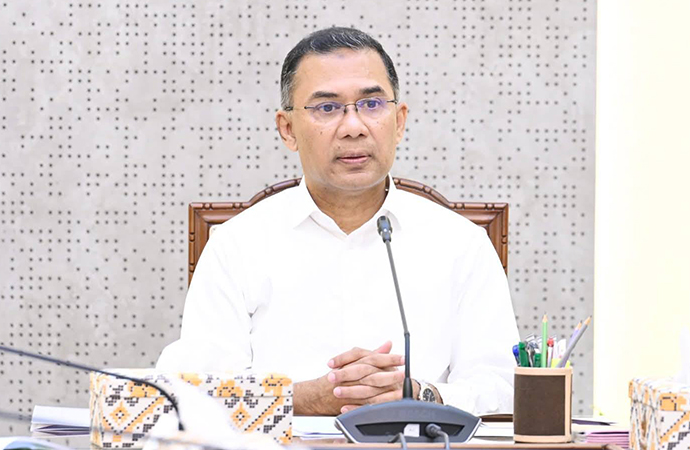
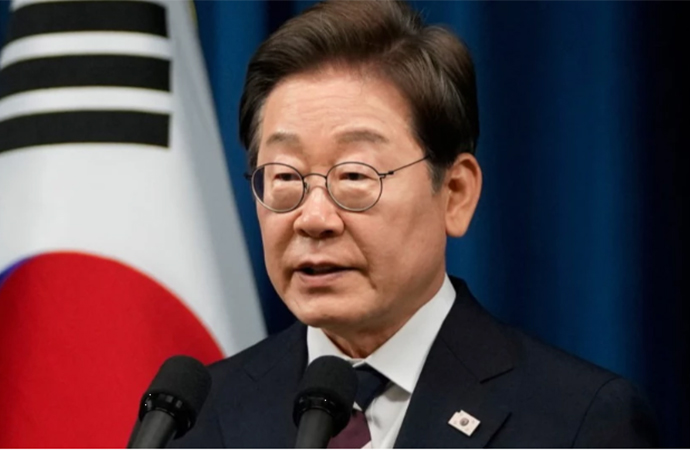
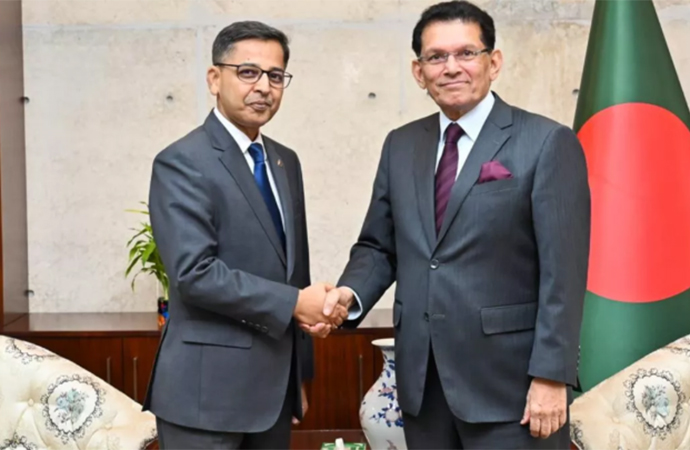
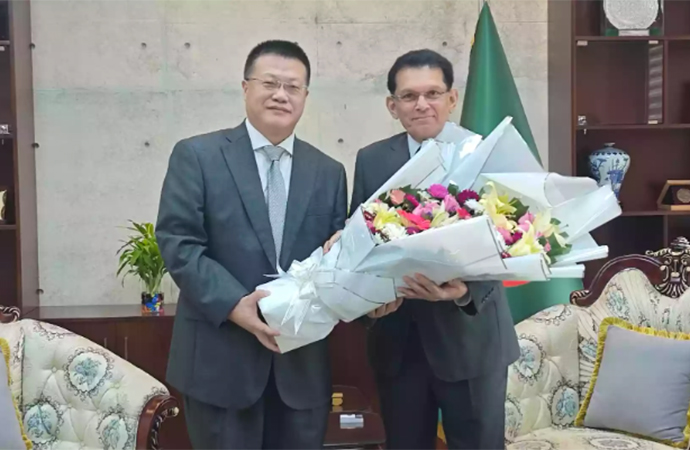
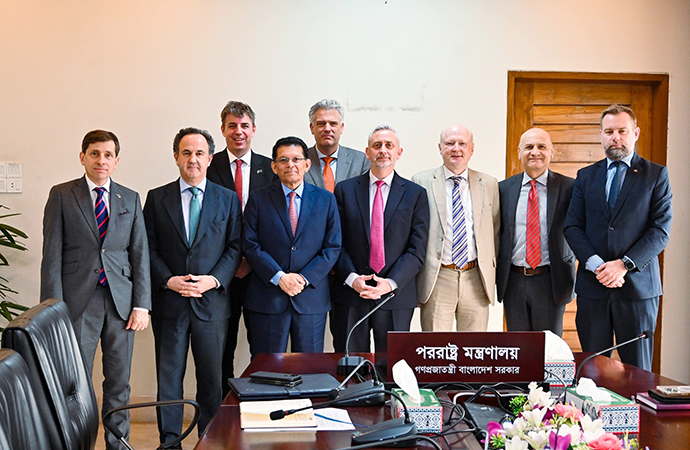
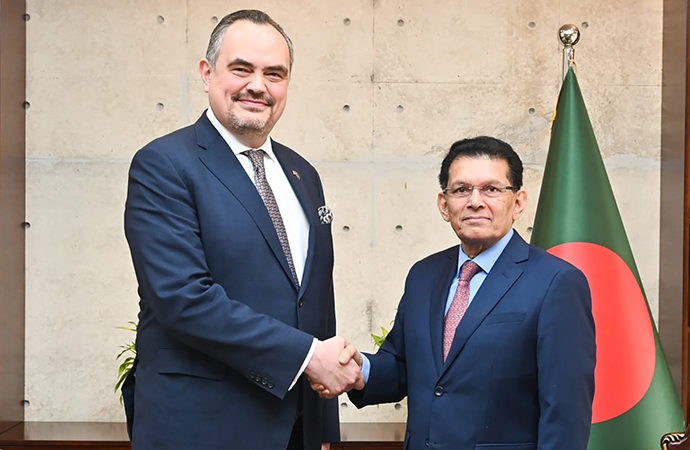













Leave a Comment
Recent Posts
Bangladesh’s first drought-res ...
In a groundbreaking development for Bangladesh’s agriculture, Ga ...
US and Iran hold another round ...
Iran and the United States were holding another round of indirect talk ...
An early hiccup for the new government?
Japan invites PM Tarique, eyes cooperation with Bang ..
Bangladesh to achieve sustained growth, prosperity u ..
Dhaka indicates ‘forward looking, balanced partnersh ..